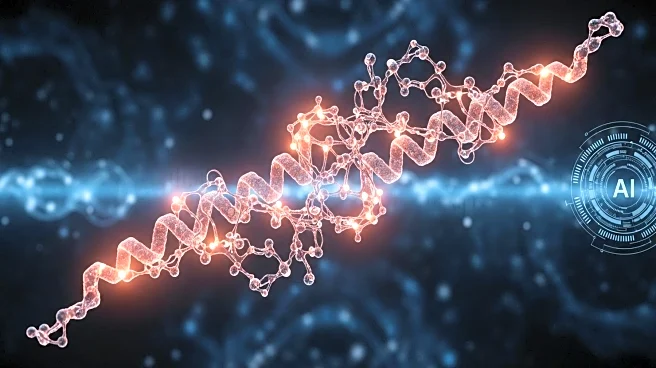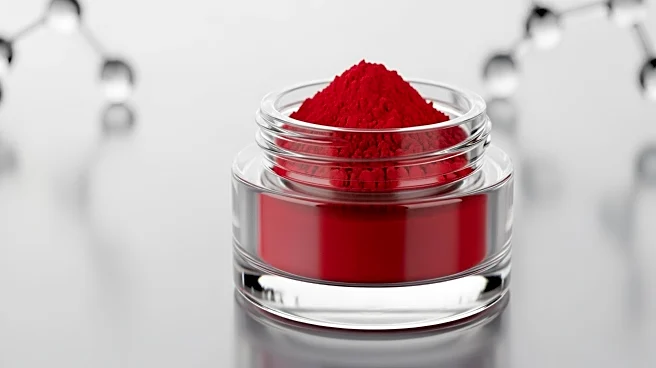What's Happening?
Researchers at the University of Washington, led by Nobel Laureate David Baker, have developed AI-designed protein switches that control drug interactions with unprecedented speed. These molecular on/off switches facilitate rapid dissociation rates, improving the safety and efficacy of medicines by allowing drugs to be activated or deactivated on cue. The study, published in Nature, applied these switches to interleukin-2, a cytokine used in cancer therapy, demonstrating controlled activation and silencing of immune cells. The technology also enhanced a SARS-CoV-2 sensor, making it 70 times faster than previous tests.
Why It's Important?
This innovation is crucial for developing safer and more effective therapies, particularly in cancer treatment, where precise control over drug activation can improve outcomes and reduce side effects. The rapid biosensor capabilities could revolutionize viral testing and environmental monitoring, providing faster and more reliable results. The approach offers a modular framework applicable across various biological interactions, potentially transforming drug design and therapeutic strategies.
Beyond the Headlines
The study's allosteric approach to protein design represents a shift from traditional methods, offering a generalizable framework for designing interactions across diverse biological systems. This could lead to new therapeutic mechanisms that activate drugs in specific disease contexts, such as tumor microenvironments, enhancing targeted treatment strategies.










